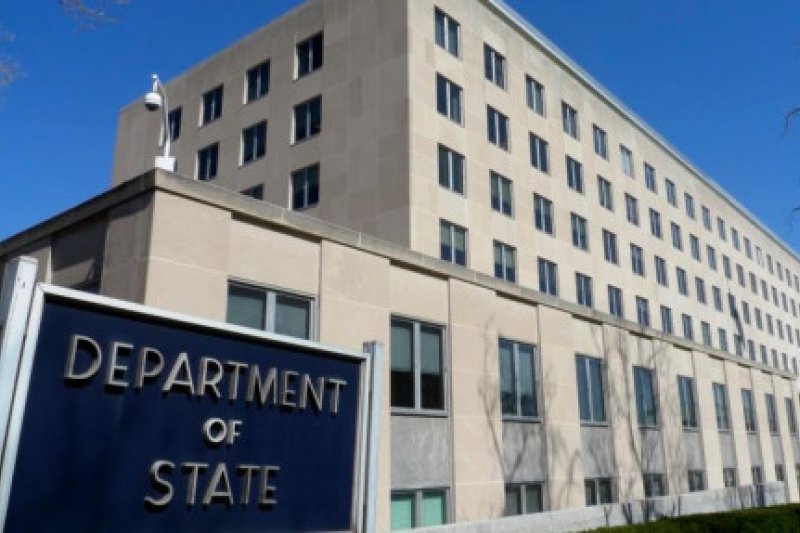Impunity, Corruption Remain Problems in Albania; DOS
The US State Department says that the main issues related to human rights in Albania during 2021 were “problems with the independence of the judiciary while the vetting process continued; restrictions on freedom of expression and the press; and corruption pervasive in all branches of government and municipal institutions ”.
These findings are included in the State Department's annual report on human rights worldwide.
"Impunity remained a problem, although the Specialized Anti-Corruption Authority and the anti-corruption courts made significant progress during the year in investigating, prosecuting and convicting senior officials and organized crime," the report said.
The report says that the Organization for Security and Co-operation in Europe concluded that the April 25 elections were well-organized, voters had alternatives between candidates who were able to campaign freely, and the Central Election Commission adequately managed its obligations.
"However, the report of the Organization for Security and Co-operation in Europe highlighted some shortcomings, including vote-buying, the flow of sensitive personal data and the considerable advantage gained by the ruling party due to being in power." State Department report.
Corruption and lack of transparency in government
The State Department says the government has not effectively enforced legislation that provides for criminal penalties for corruption by public officials and prohibits individuals with criminal convictions from serving as mayors, MPs, or in government or state positions.
"Corruption was rampant in all branches of government and officials were often involved in corrupt practices with impunity," the report said.
The report notes that by September, investigations were opened and charges were filed by the Special Prosecution Office against Corruption and Organized Crime (SPAK) against several public officials, including former ministers, mayors, judges and incumbent prosecutors, former judges of the Vetting Appeals Chamber of the Constitutional Court, former judges of the Supreme Court and officials of the executive branch.
Since September, a judge, two prosecutors, a mayor and a former director of procurement at the Interior Ministry have been charged with abuse of office or corruption charges.
The State Department says that although several government agencies investigated cases of corruption, limited resources, investigative leaks, real and perceived political pressure, and a poorly organized appointment system hampered investigations.
"While prosecutors made significant progress in prosecuting low- and middle-level public corruption cases, the prosecution rate for high-ranking officials remained low," the report said.
The department notes that corruption in the police also continued to be a problem.
"The police have not always applied the law equally. Personal, political or criminal connections, inadequate infrastructure, lack of equipment and insufficient oversight often had consequences for law enforcement," the report said.
The State Department says authorities continued to address these problems by improving police facilities, vehicles, and publicly emphasizing anti-corruption measures. The government also set up a system for verifying security officials.
According to the report, local and international human rights organizations generally acted without restraint from the government, investigating and publishing their findings on human rights cases. Government officials were generally cooperative and accountable for their views.
The justice system
"Although the constitution provides for an independent judiciary, political pressure, intimidation, corruption and limited resources prevented the judiciary from functioning fully, independently and efficiently," the report said.
Court hearings were generally open to the public, unless COVID-19 restrictions prevented journalists or the public from entering the court premises.
The State Department says the government continued the internationally monitored process of verifying judges and prosecutors and dismissing people with unjustifiable assets or links to organized crime.
The report cites problems created by the Supreme Court's lack of adequate number of judges, noting that as of July 31, the Supreme Court had a large number of 36,608 backlog cases pending trial.
"The politicization of past appointments to the Supreme Court and the Constitutional Court has repeatedly threatened to undermine the independence and integrity of these institutions," the report said.
The implementation of the provisions of the justice reform led to a pause in the normal judicial processes while working for the establishment of independent disciplinary bodies.
"While individuals and organizations may seek civil legal instruments for human rights violations, cases of judicial corruption, inefficiency, intimidation and political interference have been reported," the report said.
The report also notes that former political persecuted during the communist regime continued to make demands on the government for reparations.
"The government has not made any progress in delivering compensation during the year. The Institute for Activism and Social Change and the Authority for Information on Former State Security (Security) Files have raised concerns about the unresolved cases of missing persons dating back to the former communist regime," the report said.
Property rights also remain a problem, especially the lengthy compensation process and low levels of compensation for expropriated property.
The report states that although the Constitution and laws prohibit arbitrary or unlawful interference with privacy, family, home or correspondence, there have been reports that the government has not complied with those prohibitions.
"During the parliamentary election campaign of the year, it became known that a database with the personal information and contact details of some 900,000 citizens, as well as their possible party preferences, was made public, exposing voters to the pressure of possible ", says the report, adding that SPAK has launched a criminal investigation.
Respect for Civil Liberties and Freedom of the Media
There have been reports that the government, businesses and criminal groups attempted to influence the media in inappropriate ways.
The report says independent media were active and expressed a wide variety of views, but adds that there were attempts to exert direct and indirect political and economic pressure on the media, including threats and violence against journalists trying to investigate crime and corruption.
One of the main problems mentioned in the report is the fact that business owners freely used their media to secure favors and advance their interests with the (support) of political parties.
"Most owners of private television stations used the content of their broadcasts to influence government actions against their other businesses. There were credible reports that senior media representatives used media outlets to blackmail businesses by threatening them with negative coverage," the report said.
"Political pressure, corruption and lack of funding limited the independent print media and journalists reportedly engaged in self-censorship," the report continued.
Furthermore, economic uncertainty due to the lack of employment contracts eroded the independence of journalists and contributed to the bias of coverage. The Albanian Journalists' Union continued to report significant delays in the payment of salaries to journalists in many media. According to the journalists' union, the pandemic exacerbated these delays. Financial problems led some journalists to rely more on external sources of revenue, leading to questions about the integrity of their reporting.
NGOs also expressed concern that professional ethics was a low priority for some of the country's over 900 news portals, raising concerns about the spread of fake news that served “special financial, political and criminal interests. The dramatic rise in online media has offered a variety of perspectives as well as opportunities for corruption."
The Journalists' Union also expressed concern about the pressure on journalists from the interest of politics and business, as well as cases of violence against them.
"Before the April parliamentary elections, media outlets and journalists' associations complained about the lack of independent media access to campaign meetings held by political parties, which preferred to offer the media their party-edited content" , the report says.
The organizations also raise concerns about defamation lawsuits against journalists and the high fines and criminal files against journalists as the result of these lawsuits, undermined freedom of expression. The report also mentions the problems with the anti-defamation package, which after the criticism, debates and opinion of the Venice Commission that found it problematic, remained suspended.
The report also details problems with individual human freedoms, including the murder of a teenager who was in violation of curfew in December 2019, overcrowded prisons and insufficient care for prisoners, violence against women and their family deteriorating during the pandemic, and discrimination due to sexual orientation and gender identity.
(Source: VOA)














